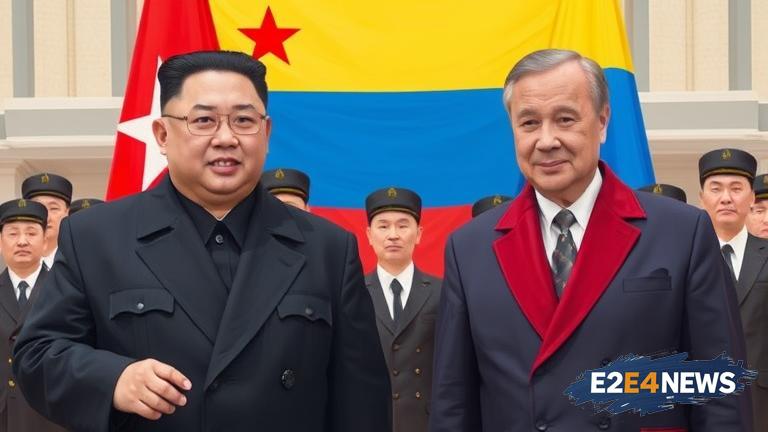In a significant display of diplomatic alignment, North Korean leader Kim Jong-un has expressed his support for all Russian efforts concerning the ongoing conflict in Ukraine. This statement was made during a visit by Russian Foreign Minister Sergey Lavrov to Pyongyang, the capital of North Korea. The meeting between Kim and Lavrov underscored the strengthening ties between Russia and North Korea, particularly in the context of international relations and geopolitical strategies. Lavrov’s visit to North Korea is seen as a crucial step in fostering cooperation between the two nations, especially at a time when both countries are facing significant international scrutiny and sanctions. The Russian Foreign Minister’s trip to Pyongyang follows a series of diplomatic engagements with other countries in the region, aiming to bolster support for Russia’s actions in Ukraine. Kim Jong-un’s backing of Russian efforts in Ukraine signifies a deepening alliance between Moscow and Pyongyang, with potential implications for global security and the balance of power in East Asia. The support from North Korea is particularly noteworthy given the country’s own history of tensions with Western nations and its pursuit of nuclear and missile programs. Despite international condemnation and sanctions, North Korea has continued to develop its military capabilities, drawing parallels with Russia’s own military actions in Ukraine. The visit by Lavrov and the subsequent statement of support from Kim Jong-un highlight the complex web of international alliances and rivalries that are being redrawn in the wake of the Ukraine conflict. Russia, facing isolation from many Western countries, is seeking to consolidate its position by forging stronger ties with nations like North Korea, which share similar interests in challenging the dominant global order. For North Korea, the alliance with Russia offers a strategic opportunity to gain international support and possibly access to advanced military technology, which could further its own security and diplomatic goals. The developing relationship between Russia and North Korea is being closely watched by other nations, including the United States, China, and Japan, each of which has its own stake in the regional dynamics of East Asia. As the situation in Ukraine continues to evolve, the support of countries like North Korea for Russia’s actions could play a significant role in shaping the international response to the conflict. Furthermore, the cooperation between Russia and North Korea may lead to increased collaboration in areas such as defense, trade, and technology, potentially altering the geopolitical landscape of the region. The visit of Lavrov to Pyongyang and the expressed support for Russia’s efforts in Ukraine by Kim Jong-un mark a new chapter in the diplomatic relations between the two countries, with far-reaching implications for global politics and security. In conclusion, the alliance between Russia and North Korea, as manifested through Kim’s support for Russian efforts in Ukraine, represents a significant development in international relations, reflecting the ongoing realignment of global powers and the pursuit of strategic interests by nations in the face of evolving geopolitical challenges.
